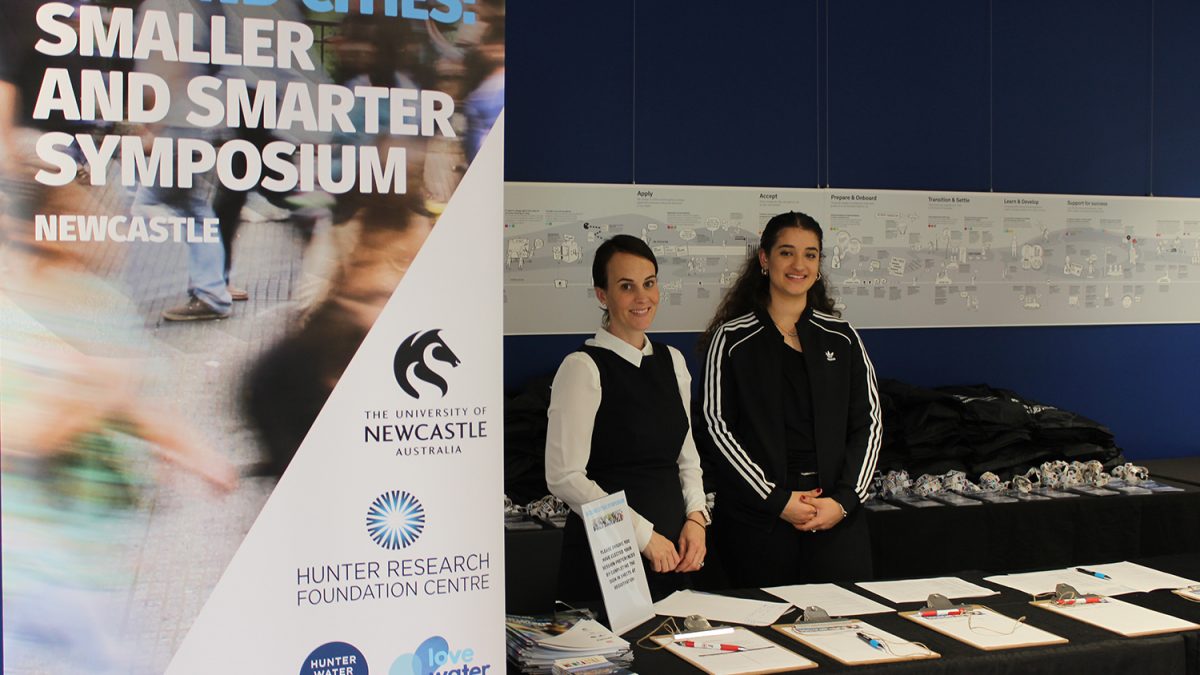Hunter Research Foundation Centre

Newcastle and the Hunter region are changing shape around us. Our economy is emerging from its ‘industrial’ cocoon as we transition to become a sustainable and vibrant city and region. It is vital that we fly into the future with cohesive strategies leveraging our potential.
Cohesive strategies arise from fostering a shared vision among regional stakeholders. Laying the foundations that will build consensus between government, industry and community around a shared vision has motivated two important programs by the University of Newcastle’s Hunter Research Foundation (HRF) Centre.
The first of these programs – the Wellbeing Watch research program – was developed by HRF to build a deeper understanding of the impact of transition on the regional community. The program recognises the growing consensus that traditional economic indicators – such as income, employment or GDP – do not tell us the whole story about health, wealth and happiness in our communities. The 2016 program, supported by Port Waratah, was the fifth study in the HRF Centre’s Wellbeing Watch series.
‘The 2016 Wellbeing Watch is a very rich dataset,’ HRF Centre researcher Dr Anthea Bill stated. ‘It gives us valuable information for the region on a whole range of variables not captured by the Census.’
For instance, in 2016, younger age groups (18-29 years) were substantially more likely to be short of money to meet everyday needs, experience financial stress, and report that their housing is unaffordable. Older age groups were more likely to feel part of a community.
These insights provide evidence to assist planners to identify areas of inequality and disadvantage in Newcastle and the Hunter region. They can contribute to aligning regional stakeholders around common goals to help create more inclusive, sustainable and liveable regional communities.
The second HRF Centre program to create opportunities for shared understanding of the region’s future was the Second Cities: Smaller and Smarter Symposium.
The 2018 Symposium was a collaborative effort led by the HRF Centre and the University of Newcastle. It provided an international platform for airing and contesting leading contemporary thought in urban and regional planning and development.
Attracting local, national and global speakers and panelists, the Symposium hosted the likes of demographer and columnist Bernard Salt, economic and finance commentator Michael Pascoe and the director of UN Global Compact Cities Program Michael Nolan.
More than 220 people representing 96 organisations attended the two-day symposium and dinner at which the key themes of innovation, infrastructure and liveability were explored and debated.
HRF Centre Director Professor Will Rifkin says the inaugural symposium featured presentations by 45 expert speakers and panelists. Participants explored innovation and disruption in urban design, city and regional planning, economic development, technology development, health, education and wellbeing.
‘It was our aim to focus on issues that pertain to different sectors – government, business and community – as we plan for the future of Newcastle as a second city,’ Professor Rifkin says.
‘Port Waratah’s support of the event was invaluable in ensuring that the symposium was successfully staged.’
The Hunter Research Foundation Centre provides rigorous, independent research and analysis that is readily understood and clear in its implications. it represents a partnership forged between the long-standing Hunter Research Foundation and The University of Newcastle.